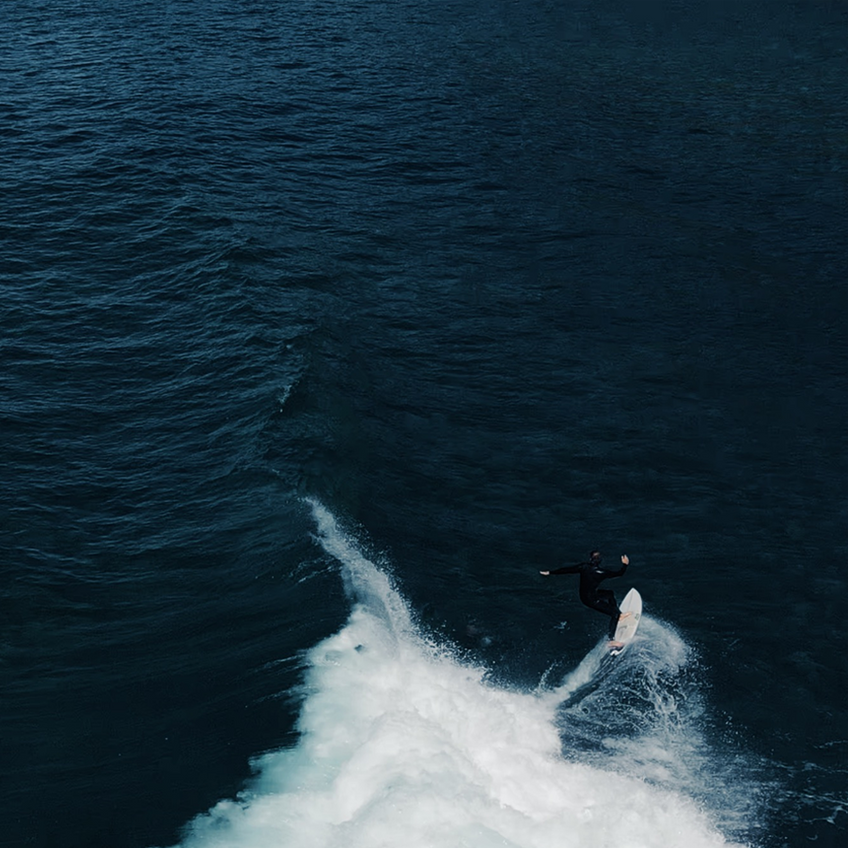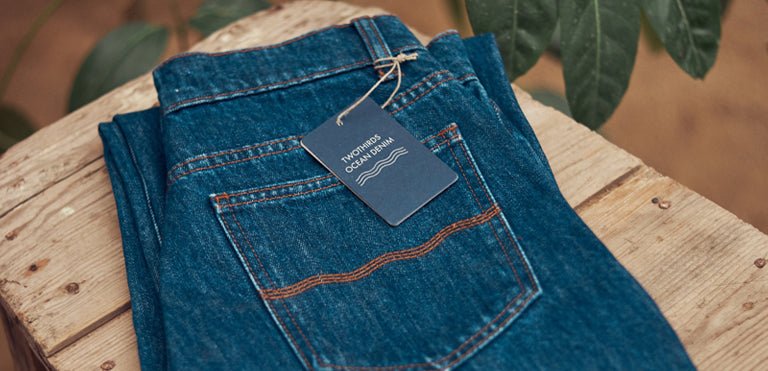Stretched, distressed, stone-washed, flared, embellished, torn, ripped, destroyed, bleached. Denim has been through a lot since it was first forged for the gold miners of the 1870s. Though everyone wears it, no-one wears it the same.
Made popular by the stars of early Hollywood, like James Dean and Marylyn Monroe - it was blue jeans that prompted a fashion revolution. And with Ocean Denim, they’re no longer rebels without a cause.
That’s because we’ve worked hard to limit the impact of our jeans: they hark back to a simpler time when denim wasn’t so heavily treated. A vintage style, a beautiful blue, an eco-friendly design.

Let's start with the fabric. Certified organic cotton made in a GOTS certified factory. This international standard guarantees that our denim is made without harmful dyes, using resources consciously. During cotton cultivation this also means richer soil, no pesticides or fertilisers and careful irrigation - saving up to 90% of water compared to normal cotton. That’s one of the reasons we call our jeans Ocean Denim: clean and conscious water use means that aquatic life is unaffected by chemical pollution. Certified organic cotton also drives down CO2 emissions by 70%, putting less strain on the atmosphere, and even the ocean - one of Earth’s greatest carbon sinks. Our blue jeans contain a portion of recycled cotton too!

Next, check our rivets. Way back when denim was used as workwear, these tiny metal spheres were what made a jean a jean. It meant the pockets would hold out as long as the denim itself. So it’s good to know that ours are sustainably made, along with our buttons, zipper and recycled polyester thread. The pocket lining: also organic cotton. Every detail counts.
But the key to our denim jeans is the way they are washed. Initially dyed a deep indigo or black, denim needs altering before it can take on the look we know and love, and feel as comfortable as it should.
Yet it’s no secret that standard production goes too far, putting the jeans into huge washing machines that run for many cycles - often with pumice stones - until a lighter colour is achieved. Contaminated with dye and chemicals, the water used is often dumped into rivers, where it can travel to the sea. So we prefer to blow bubbles at the issue, with e-Flow technology.

Using 70-80% less water and 40% less energy than regular washing methods, e-Flow makes use of air to create nano bubbles, lined with decolourising chemicals. As 100% of these chemicals are then captured by the garment, the result is not only zero wastewater pollution but almost no wastewater at all. Shrinking its environmental impact down to size, this is the future of denim.

When you pull on a pair of TWOTHIRDS jeans, you’re not only wearing a classic piece of comfort clothing, but a garment that represents everything we stand for. Eco. Ocean. Change.
The rest is in your hands. Denim is a low maintenance material that only really needs to be washed (cold) every four to six weeks, saving water, energy and preventing fading. This way, your jeans will live up to the wave sewn across their pocket, a small reminder of the ocean.










